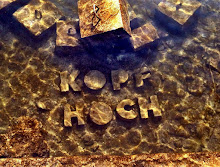
I met my husband while he was studying in the States. Had he gotten his undergrad degree in Switzerland, at the University where he's now getting his doctorate, it would have cost 840 francs per semester instead of the 4,631 francs at his university in New England.
Tuition is not the only difference in Universities in the US and Switzerland. Whereas in the US, students don't need to declare a major until the 2nd or 3rd year of study. Here, students begin studying only one or two fields.
There are also Hochschulen (high schools) in Switzerland. They're less like US high schools and more like college in France. They come after secondary school and are instead of university.
So the general course of a Swiss child's education is as follows:
Primary school from 1st to 9th grade
Then there is secondary school: kids can choose to go to a vocational secondary school that will lead to an apprenticeship or they can go to a secondary school that will lead to gymnasium (college prep high school), or a hochschule. (There's also a Berufsmatur as well that's somewhere in between.) From Gymnasium, kids will go to University or a Hochschule.
(Some kids can choose to take exams and enter Gymnasium as early as 7th grade if they want, but they are few.)
But there are tests and intentions that need to be taken to chose this course. This has always made me feel uneasy. I was fearful that foreigners who don't know how the system works wouldn't be able to help their children find their way through the system. It also felt like a way to keep classes the way they are. But my teacher friend from the
I post explained that teachers are aware of these issues and encourage the kids to follow a path that best suits there needs. There are also multiple info nights for families with brochures in multiple languages to inform them.)
There also seems to be a greater respect for and appreciation of apprenticeships and trade schools here in Switzerland. Since learning about the system and hearing more and more about the fact that too many children are being forced on a course for college, resulting in increased drop out rates and needless debt, I've begun to appreciate this system more.
So this post was less funny and more informative, I guess (hope.)




















































